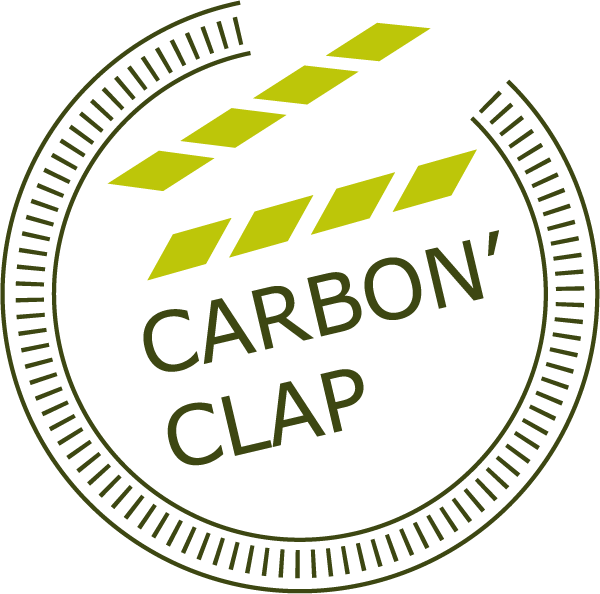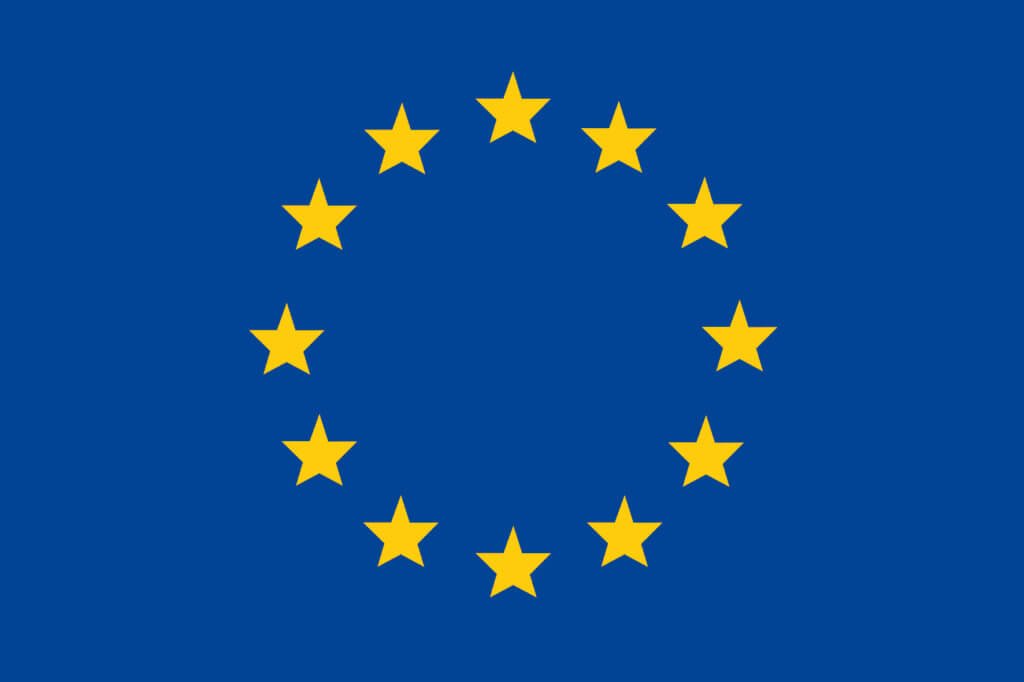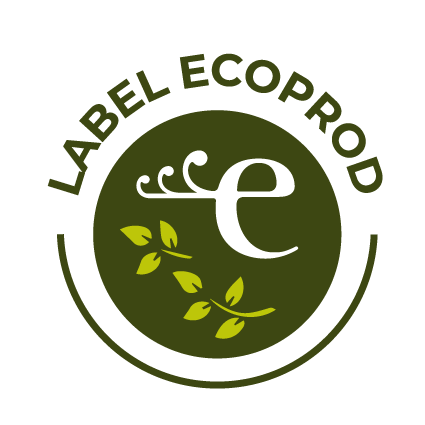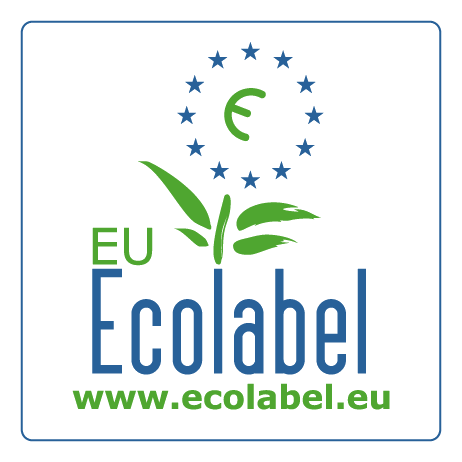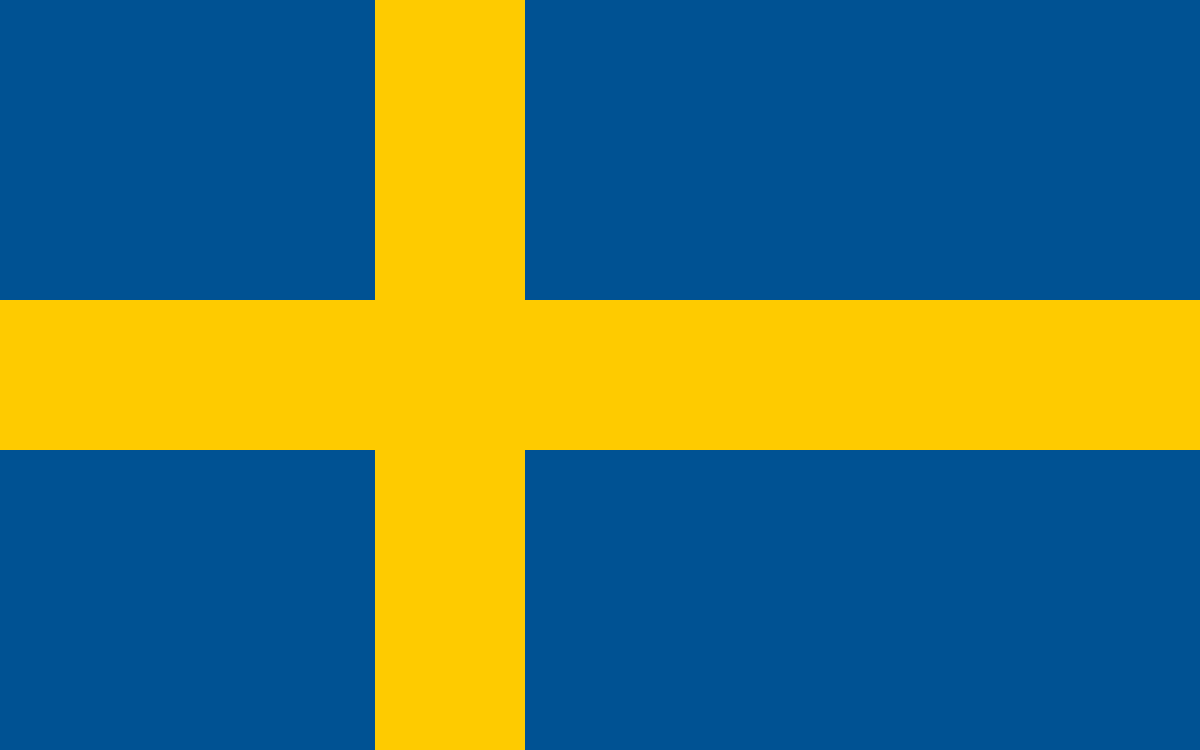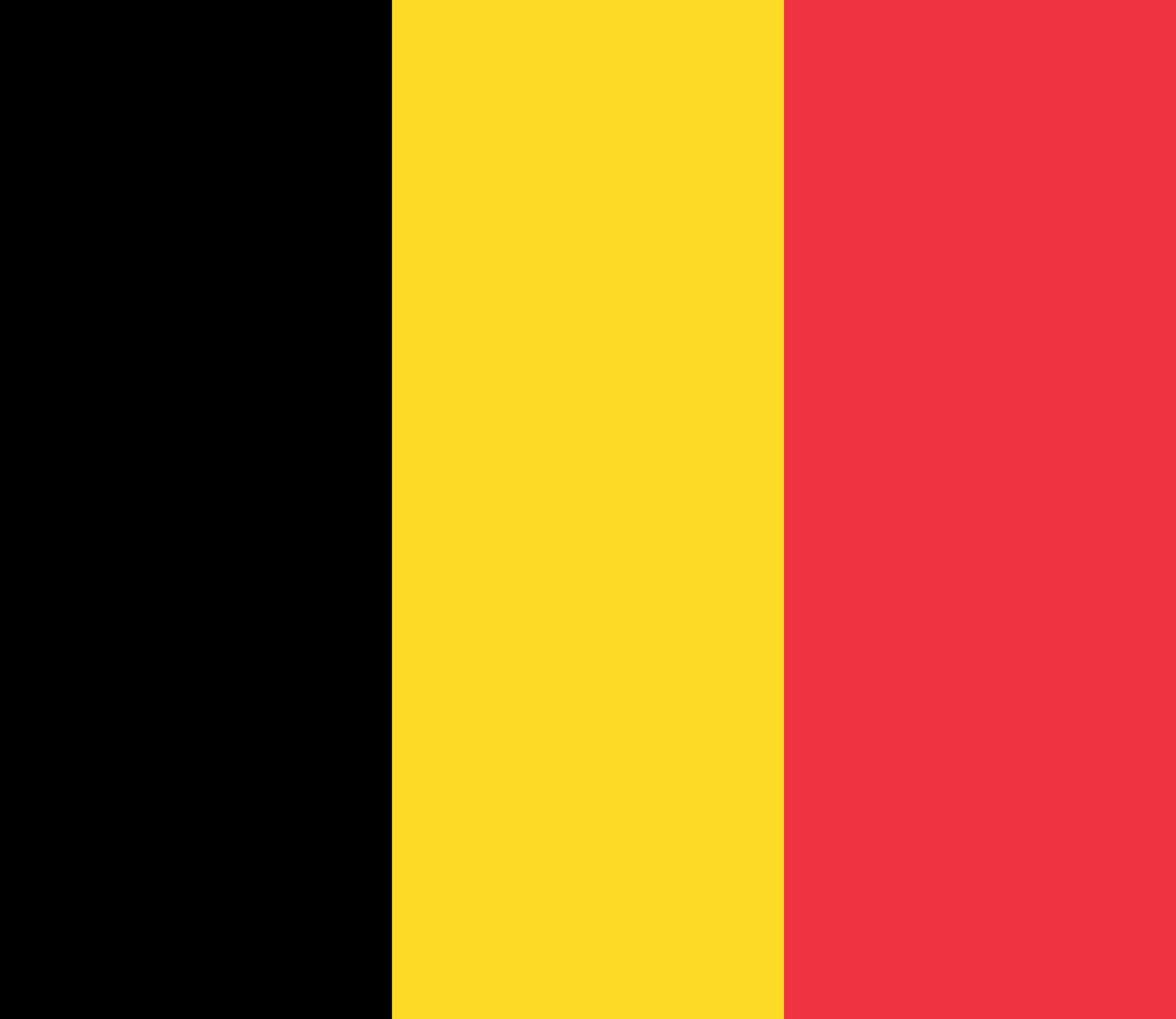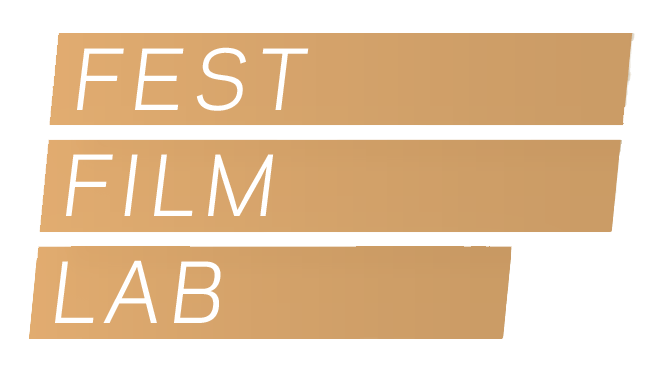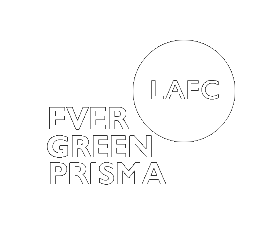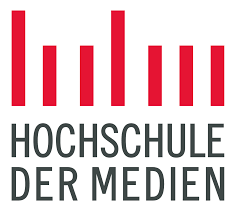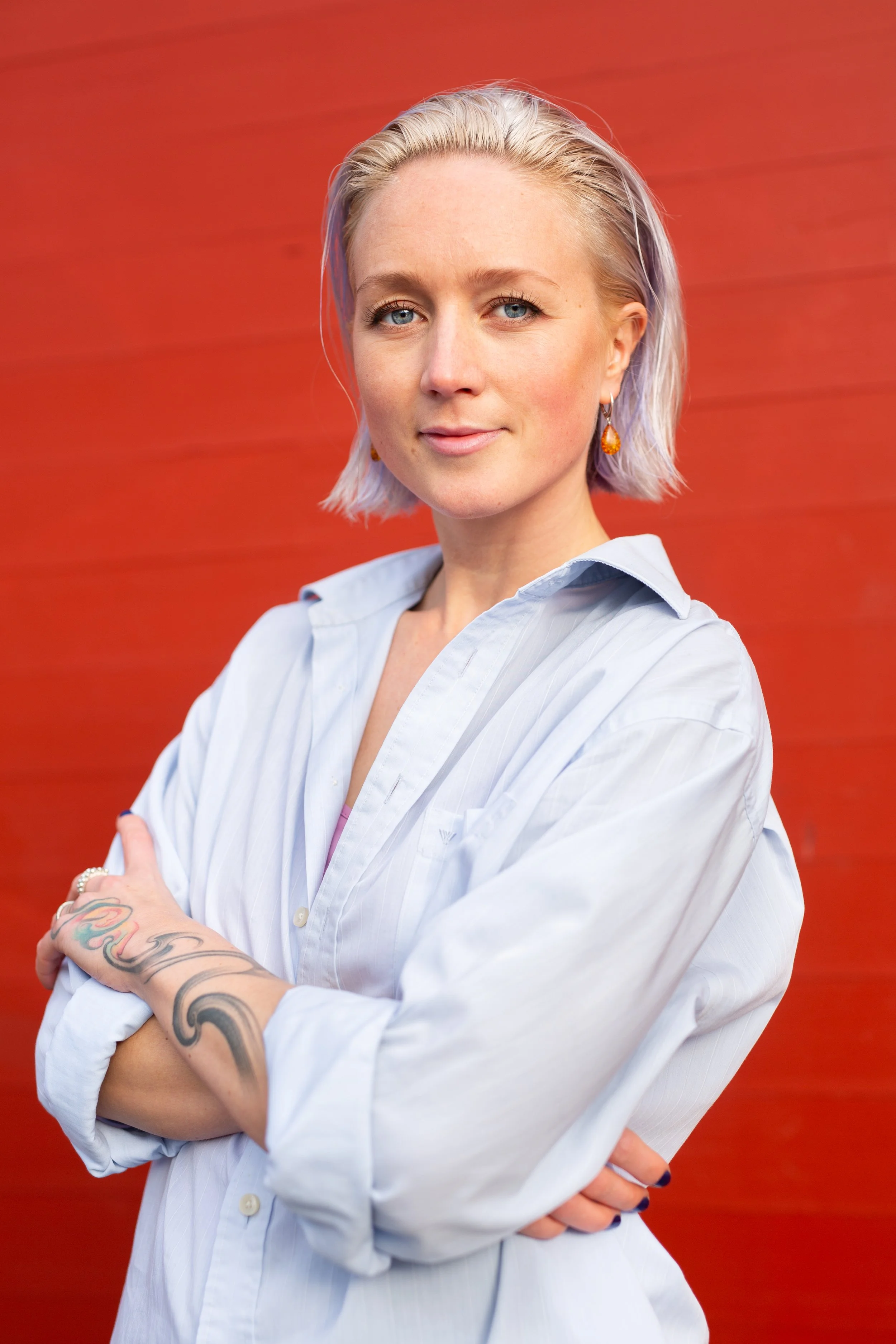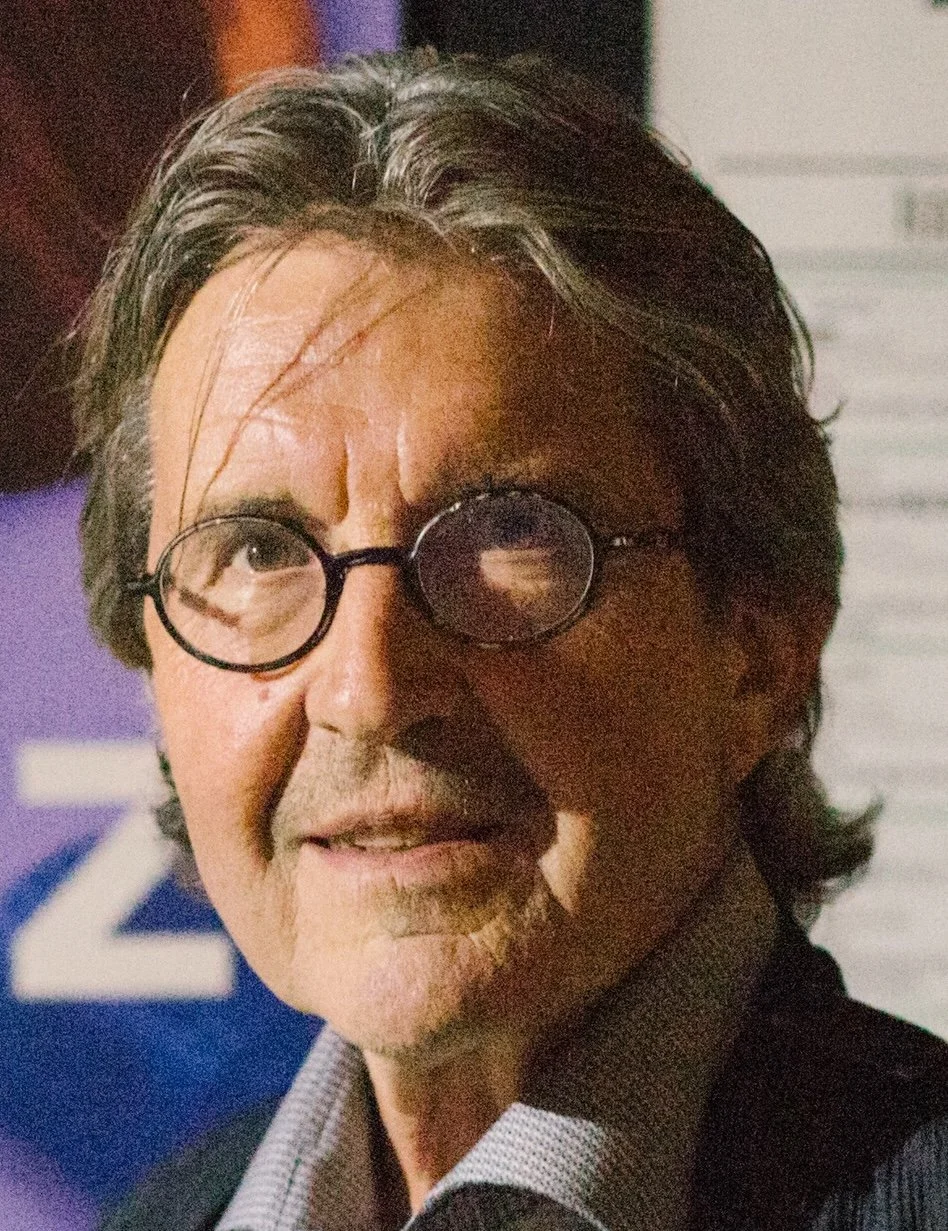Toolbox for Green Innovation:
A Practical Guide for Film Professionals
Introduction
This toolbox presents an overview of the seven CresCine ecosystems and gives a status of sustainable film production. It offers a six-dimensional comparison, covering national guidelines, legislation, promoted handbooks, key green players and coordinators, education and training, and prospects for sustainability in film production.
In addition to the comparative overview, the tool features seven in-depth territory profiles where you can explore each ecosystem’s approach in more detail. Each profile is accompanied by a case study highlighting local initiatives, challenges, and practical solutions for greener production.
The tool also presents a description of a green manager course, developed by Tobias Frühmorgen, lecturer at Lusofona University.
Lastly, there are lists of carbon calculators, certification systems, green consultant training opportunities, and sustainable initiatives across Europe.
Definition of Toolbox
This toolbox presents a curated set of practical resources developed to support film professionals in making informed decisions about sustainable production. It combines a comparison tool, ecosystem profiles, and case studies to provide industry-relevant knowledge and actionable guidance, giving producers, institutions, and stakeholders the opportunity to plan and implement greener film practices, inspired by existing practices in the seven territories.
Target Group
The Toolbox is primarily aimed at film professionals, including producers, film studios, and supporting bodies such as film institutes and funds. It is also relevant for sustainability managers, consultants, film schools, production service companies, and external stakeholders interested in understanding and comparing sustainable practices across different territories.
Executive Summary
Across Europe, the film and audiovisual sectors are undergoing a gradual but significant transformation toward sustainability. While the level of institutionalization and enforcement varies widely, there is a clear and growing recognition of the need for sustainable practices in film production.
Pioneering territories like Ireland, Flanders (Belgium), and, in some way, Denmark demonstrate how national or regional policy frameworks, dedicated funding incentives, and embedded training can create systemic change to some extent. These regions lead the way with mandatory sustainability plans, carbon calculation tools, certification schemes, and the institutional support of film agencies and institutes, as well as broadcasters. Their success is largely driven by proactive leadership, political alignment with climate targets, and cross-sector cooperation.
In contrast, countries like Estonia, Lithuania, Croatia, and Portugal are at earlier stages of the transition. Here, sustainability is mostly driven by individual champions, grassroots initiatives, or international co-productions that import green standards. Though lacking in formal legislation or infrastructure, these countries show some momentum - particularly through education, EU-funded pilot projects, and growing participation in transnational networks.
In large, this shows that if there isn’t a legal framework or backing from centralized institutions, the sustainable journey majorly relies on individuals. It is through their work with sustainability in grassroots movements and networks that the green transition is mainly taking place. Furthermore, sustainable film production - although it is desired by individuals working towards this agenda - is still a long way from being fully implemented, especially in the Baltic countries, where a lack of infrastructure and institutional frameworks sets a barrier to a more sustainable film industry.
THIS TOOLBOX IS CREATED AND COMPILED BY
RECOMMENDATIONS:
-
In Lithuania, Estonia, Croatia, and Portugal, the relatively modest budgets have historically led to what might be described as a form of "natural" sustainability. Limited financial resources often necessitate the reuse of costumes and sets and encourage filming within national borders rather than abroad.
-
Different tools, calculators, and frameworks have been identified and mapped. The mapping clearly shows that there are numerous sustainability initiatives to adhere to. This is a major challenge, as although all share the goal of mitigating environmental impact, they often differ in their visions - ranging from carbon reduction to alignment with the Sustainable Development Goals (SDGs) and in their methodologies. While such variation may be manageable at national or regional levels, a more harmonized framework is essential to simplify and make the green transition easier, particularly in the context of international co-production.
-
When talking to the industry professionals involved in the movement towards a greener industry, they are truly and profoundly engaged in the process, and they strive to make their industry more sustainable. In the countries with limited or no legal frameworks, these champions are vital for the green agenda. It is through their engagement and commitment to the agenda that the countries are actively working towards producing more sustainably.
This shows in the way that they participate in networks and conversations with other likeminded, establishing a strong grassroot movement - especially in the Baltics, where the institutional framework isn’t in place. When talking about sustainable practices with professionals acrossthe EU, they have strong knowledge of each other, which shows that their engagement goes beyond borders.
-
The ecosystems that have a clear plan for working more sustainably in film production are more interested in and have the capacity to move beyond the green agenda. Given the new Corporate Sustainability Reporting Directive, where the social and governance perspectives are in focus there is a new need for broadening the scope of sustainability. That is especially interesting for Ireland and Flanders, which have already implemented extensive sustainability measures.
-
Especially in the Baltic countries, there are systemic challenges when it comes to green energy. If green energy isn’t widely available, it will be much more difficult for Baltic producers to receive green certifications for their productions, as they will need to rely on energy that is not responsibly produced.
-
When discussing the topic of institutional frameworks and centralized legislation in this area, it has become clear that there is an ongoing debate about whether an incentive-based approach or an approach that is based on the demands of participating is more effective, essentially, whether it should be a carrot or a stick. While some of the respondents believe that an incentive-based approach would support the green transition best, as is the case in Austria, others argue that a different approach that requires participation to receive funding, rather than offering financial rewards to those who voluntarily choose to produce more sustainably.
-
While shooting green by reducing the footprint of productions is important, there is a great opportunity to make an impact through the content put on screen. Collectively, the industry reaches millions of people every single day, and by creating content that normalizes sustainable behaviors and helps people better understand and connect with the world, there is the chance to tell new stories. This could be in the form of focusing on sustainable ecodesign or production design, which incorporates sustainability considerations from the earliest stages of development, including partner selection, location scouting, and scriptwriting.
This is already being implemented in different initiatives across Europe. An example is the Green Guide from MOIN in Hamburg.
-
The portraits detail the characteristics of the seven selected ecosystems in terms of their commitment to sustainable film production. They feature a six-dimensional comparison of the ecosystems by giving an overview of the different territories, and by looking at national guidelines, legislation, promoted handbooks, key players, and sustainability coordinators, the provision of education, as well as prospects and future plans.
-
This tool presents an overview of the seven CresCine ecosystems and their commitment to sustainable film production. It offers a six-dimensional comparison, covering national guidelines, legislation, promoted handbooks, key green players and coordinators, education and training, and prospects for sustainability in film production.
-
This tool presents an overview of the seven CresCine ecosystems and their commitment to sustainable film production. It offers a six-dimensional comparison, covering national guidelines, legislation, promoted handbooks, key green players and coordinators, education and training, and prospects for sustainability in film production. RUN YOUR MOUSE OVER (TAP ON MOBILE DEVICES) THE TABLE CONTENTS TO REVEAL DATA.
| Territory | |||||||
|---|---|---|---|---|---|---|---|
| Green Production Guide | ❌CROATIA: No. Istria is the only local region that has started promoting green filming through its program Istra snima zeleno.
|
✅DENMARK: Yes. The Danish Sustainable Film and Tv-Production Alliance (BFTP) has a handbook which uses Trentino Green Film certification.
|
❌ESTONIA: No.
|
✅FLANDERS: Yes. The VAF created Handleiding Duurzam Filmen in collaboration with Screen Flanders.
|
✅IRELAND: Yes. Screen Ireland's 'Sustainability Standards Live-action Production' is a required handbook for all live-action film and tv shows that need to get funding through Screen Ireland. This includes hiring a sustainability adviser, carbon reporting, making a plan for reducing emmisions as well as reporting on the plan.
|
✅LITHUANIA: Yes. There are online guidelines on the Lithuanian Film Centre website with recommendations on how to minimize environmental impact.
|
✅PORTUGAL: Yes. Portugal Film Commision has provided a Green guidebook. Following the guidebook isn't mandatory and there are not sustainability requirements involved in getting funding from the commision, however it is encouraged.
|
| Legislation | ❌CROATIA: No.
|
❌DENMARK: No.
|
❌ESTONIA: No. The regional Tartu Film Fund has introduced a requirement for applicants to submit a sustainability plan as part of their funding application.
|
❌FLANDERS: No.
|
✅IRELAND: Yes. Under the CAP23 the Irish film & TV production sector is obliged to reduce emissions by 25% by 2025 and by 50% by 2030.
|
❌LITHUANIA: No.
|
❌PORTUGAL: No.
|
| Funding, Consultants, Sustainability Officers | ❌CROATIA: No. But HAVC works closely together with Morana Ikić Komljenović and Tanja Ladović Blažević who are both a part of the Eurimages sustainability group.
|
❌DENMARK: No.
|
❌ESTONIA: No. But Mirjam Mikk from Estonian Film Institute is responsible for sustainable initiatives at the institute, and is actively engaging in relevant networks across the Baltics.
|
✅FLANDERS: Yes. The VAF (Flanders Audiovisual Fund) has a sustainability coordinator position currently held by Tim Wagendorp.
|
✅IRELAND: Yes. The inward production and sustainability executive posistion at Screen Ireland is currently (DEC2024) held by Michael Byrne.
|
❌LITHUANIA: No.
|
❌PORTUGAL: No.
|
| Green Education | ✅CROATIA: Yes. HAVC supports training initiatives, workshops, and international collaborations, and The Academy of Dramatic Art in Zagreb complements these efforts through projects like GEM and SEAM, which integrate sustainability into film education and practice.
|
✅DENMARK: Yes. The Nordic Sustainability Manager Training Course using the framework from Hochschule der Medien from Stuttgart, BFTP offers workshops, and sustainability is embedded in the Multiplatform and Storytelling Production bachelor’s program.
|
✅ESTONIA: Yes. The Baltic Film, Media and Arts School (BFM) integrates sustainability through courses like Green Production program, teaching students practical tools and strategies for eco-friendly filmmaking.
|
✅FLANDERS: Yes. VAF provides resources to students in Flemish film schools as part of their training and has developed presentations for film school educators.
|
✅IRELAND: Yes. The National Talent Academies offer free sustainability courses to provide information on the role as sustainability advisor for Irish productions and to teach best practices in relation to Screen Ireland’s Sustainability Advisor Initiative and the Sustainability Innovation Fund. Screen Ireland and Trentino Green Film have collaborated on educating the Irish screen industry on best practices for sustainability.
|
✅LITHUANIA: Yes. Lithuania is a part of the Nordfilm Network, which brings together 11 film schools across the Baltic and Nordic regions. One of the key annual activities is the Nord Creative Camp, held in Lithuania. Lithuania takes part in the Green Production BIP that will be located in Tallinn.
|
✅PORTUGAL: Yes. Lusófona University leads sustainability education through dedicated Green Consultants course training industry professionals, integration of sustainability modules into bachelor and master film programs and collaboration with international networks to develop best practices. Sustainability education remains concentrated at institutional level rather than industry-wide.
|
| Co-Production Criteria | ❌CROATIA: No. But the incentives program encourages green-related production activities and the green certificate procedure by including all related expenses as eligible for cash rebate.
|
❌DENMARK: No.
|
❌ESTONIA: No.
|
❌FLANDERS: No. But international co-productions are encouraged to adopt sustainable measures, but they aren't required to.
|
✅IRELAND: Yes. If there production days in Ireland and if a production receives support from Screen Ireland then the production standards for live-action apply - however the production also has acces to the sustainability innovation fund and sustainability advisor initiative.
|
❌LITHUANIA: No.
|
❌PORTUGAL: No.
|
| Prospects / Plans | ✅CROATIA: Yes. HAVC plans to start incorporating the sustainability criteria in the bylaws for national production and incentives program funding in 2025 nation wide.
|
✅DENMARK: Yes. The Nordic film institutes, public service actors and major streaming services are working on aligning their demands on the industry for sustainability. Hopefully from 2026, this will result in a common Nordic standard Nordic Ecological Standard based on the ecological standards from Germany. For now, the aim is that there will be a trial period during 2025 where the standards will be rolled out in the Nordic countries.
|
✅ESTONIA: Yes. The country's participation in relevant networks, along with its educational initiatives, demonstrates a commitment to becoming a sustainable film nation.
|
✅FLANDERS: Yes. The VAF (Flanders Audiovisual Fund) requires its funded projects to use Eureca, the European eco-calculator funded by the European Development Fund (CO2-calculator).
|
✅IRELAND: Yes. Screen Ireland's requirements on the industry include concrete actions plan that could help reach Ireland's 2030 and 2050 carbon emission goals. Foregoing the new production standards from Screen Ireland the Irish film industry also had also come together to create a coalition, ScreenGreening, which is committed to the cause of making the industry greener. The coalition includes TG4, RTE, Virgin Media Television, Screen Ireland, Screen Producers Ireland and the BAI (Broadcasting Authority of Ireland).
|
✅LITHUANIA: Yes. Lithuanian Film Centre is working on the action plan to implement environmental sustainability principles through the implementation of funded film development and production projects, as well as the training on sustainability in film production is planned.
|
✅PORTUGAL: Yes. Portugal Film Commission highly encourages green film production, but doesn't demand it. Another key player in the Portugese film industry is "Repensar - Associação de Green Consultants de Portugal" which is an organization dedicated to reduce emission from the film sector, influence policies, raising awareness and educate the industry.
|
-
This is an overview of most relevant carbon calculators used for film and tv production in Europe. It is a list of concrete tools used to calculate carbon footprint on productions.
COUNTRY:
ORIGINATOR:
ADGREEN
The AdGreen carbon calculator is a global tool, supplying 309 electricity emissions factors for different countries and states. This allows users to accurately measure their production regardless of the location.
COUNTRY:
ORIGINATOR:
EcoProd
Carbon’Clap is Ecoprod’s free carbon calculator designed to measure greenhouse-gas emissions from audiovisual, film, TV, and advertising productions. Originally launched in 2012 and overhauled in 2022–2023, it updates methodologies and user experience in collaboration with industry stakeholders and environmental experts. The tool supports live-action, animation (2D/3D), and post-production scopes, provides activity-data entry across key departments (e.g., energy, travel, set construction, catering), and generates results aligned with French CNC certification criteria; it also enables Excel exports of activity data to match CNC impact-measurement requirements. Carbon’Clap is positioned to facilitate comparable reporting, inform eco-design of productions, and support compliance with green standards and labels within the French and European contexts. Ecoprod offers documentation, a user guide, and a demo video to help users adopt the tool. EcoProd has started to showcase learning videos to enhance sustainability literacy with their program "StepUp".
COUNTRY:
COUNTRY:
Eureca is a pilot project emerging from the European project Green Screen, financed by the European Regional Development Fund.
ORIGINATOR:
Eureca is a pilot project emerging from the European project Green Screen, financed by the European Regional Development Fund.
COUNTRY:
COUNTRY:
COUNTRY:
KlimAktiv
ORIGINATOR:
KlimAktiv is a German organisation dedicated to supporting businesses, municipalities, and individuals on their journey to climate neutrality. They offer services ranging from CO₂ emissions calculations to the development of comprehensive climate strategies. Their mission is centered on achieving zero emissions through transparent and credible approaches
COUNTRY:
Green Producers Club
ORIGINATOR:
The Green Producers Tool is a carbon-emissions measurement platform designed for cultural and creative productions, including Film & TV, Festivals, Performing Arts, Events, Sports, and Exhibitions/Artworks, with a museum-focused module in development. It enables users—producers, purchasers, and suppliers—to plan scenarios, collect activity data (e.g., travel, food, equipment use, waste), and generate reports showing CO2e totals by activity, category, and overall production. Accessible on desktop and as a mobile web app, the tool supports on-the-go data entry during production. It includes more than 12,000 emission factors and is updated in consultation with members to reflect evolving user needs and scientific and technological advances. Features include pre-production planning and comparison, data collection from contracts and invoices, and report downloading for stakeholders and funders; members also receive production guides. The tool is positioned to support iterative improvements and alignment with emission reduction targets.
Zürich film foundation, SRG, Cineforom, and Klimaktiv
ORIGINATOR:
Green-Shooting.ch provides a CO2 calculator for film, media, and TV productions, aimed at helping teams record emissions, identify climate-relevant activities by production phase, collaborate with colleagues and partners, and generate reports and KPIs for broadcasters, production companies, or film funds. The platform emphasises building a solid data basis to improve future results through a production archive and learnings, and notes prior successful use in Germany, Austria, and South Tyrol. Access options include a Professional tier (unlimited productions, collaboration features, optional custom KPI dashboard) and a time-limited demo (30 days, one test production with up to 10 activities).
Commissioned by the European Commission from KlimAktiv
ORIGINATOR:
The new European Carbon Calculator—currently in beta testing—is the EU’s first harmonised tool for measuring the CO₂ footprint of audiovisual productions. Built on KlimAktiv’s proven methodology, it was commissioned by the European Commission (€650 k, Creative Europe MEDIA) and developed by a consortium led by Seriotec (Yamdu) with KlimAktiv and green-film expert Philip Gassmann. Running from January 2024 to December 2027, the web app offers a free, user-friendly interface that plugs into existing national calculators via a common API, ensuring comparable data across all 27 EU member states while remaining compatible with deeper national systems. After a successful beta phase launched in May 2025, the final release is expected to become the standard for European co-productions and policy reporting.
COUNTRY:
KlimAktiv
ORIGINATOR:
The LAFC and Greenshooting CO2 Calculator is an Austria-specific carbon footprint tool for film and TV productions, adapted for the Lower Austrian Film Commission (LAFC) from the Greenshooting calculator originally initiated by MFG and developed by KlimAktiv. It helps users identify emissions hotspots in a few steps and requires attribution to LAFC (with logo) in credits, websites, social media, and print when used. Access is available via login, with an option for Green Film Consultants to request extended permissions. The site also provides guidance, background information, data use and privacy details, and references the LAFC Evergreen Prisma advisory service.
BAFTA
ORIGINATOR:
Albert is the screen industry’s sustainability initiative that provides free online tools and guidance to help film and TV productions measure and reduce environmental impact. Its toolkit comprises a carbon calculator and a Carbon Action Plan that together enable productions to estimate and report footprints across activities like offices, studios, travel, accommodation, materials, disposal, and post-production, and to gain certification by completing reduction-focused actions. The platform has been revamped to support international use with localised versions and global emissions factors, and some broadcasters require its use in commissioning processes. Additional features include reporting, guidance materials, training, a suppliers directory, and optional offsetting via Creative Offsets (offsetting is no longer mandatory for certification from Jan 2, 2024). The calculator is accessed via account login and supports both draft (pre-production) and final (post-production) footprints to guide planning and verification. Sources: Albert’s Carbon Calculator and Production Certification pages and toolkit announcements.
-
This is an overview of most relevant carbon calculators used for film and tv production in Europe. It is a list of concrete tools used to calculate carbon footprint on productions.
COUNTRY:
EcoProd
ORIGINATOR:
The Ecoprod Label aims to highlight audiovisual projects distinguished by their ambitious environmental initiatives and actions. It's a complete, free reference tool to reduce the environmental impact of your production.
COUNTRY:
ORIGINATOR:
Green Film/ Trentino Film Commission
COUNTRY:
ORIGINATOR:
Trentino Film Commisions 'Green Film' is one of the most used certification systems for film and tv- productions.
COUNTRY:
COUNTRY:
"Green Shooting" work group
ORIGINATOR:
The GreenMotion label represents the nationwide ecological standards for audiovisual production in Germany, developed by the Green Shooting Working Group, which includes major German TV broadcasters, VoD services, film/TV production companies, and associations.
Federal Ministry for Climate Action, Environment, Energy, Mobility, Innovation and Technology (BMK)
ORIGINATOR:
The Austrian Ecolabel is a certificate given to Austrian film productions, not to the film production companies. The guideline includes criteria in the fields of mobility and climate protection, set, materials for buildings and props, costumes and make-up, technology, catering, and accommodation for a specific film production.
COUNTRY:
unknown
ORIGINATOR:
The EcoMuvi certification ensures transparent management of public and private funding by requiring independent and certified reporting. The protocol evaluates and certifies the sustainability performance of audiovisual sets in pre-production, shooting, and post-production phases, with a streamlined workflow for agile projects. EcoMuvi is applicable to various types of audiovisual projects in Italy and abroad. The evaluation system is based on a scale of unsatisfactory, satisfactory, highly satisfactory, and not applicable. The PEF System groups all actions by macro-thematic categories, such as management systems, resource management, waste management, energy consumption, and GHG emissions. The certification body assigns a classic logo (25%-79% PEF achieved) or an excellence logo (80%-100% PEF achieved) based on the project’s performance rate.
BAFTA
Albert offers a toolkit comprising of a carbon calculator and a Carbon Action plan. Albert Certification is achieved by completing a Carbon Action Plan. Successful completion of a Carbon Action Plan will allow a production to be given use of the Albert logo which can be displayed on the end board.
-
This is an overview of the most relevant sustainability initiatives in film and TV production in Europe. It is a list of concrete tools used to calculate carbon footprint on productions.
COUNTRY:
ECODES
ORIGINATOR:
CeroCO2 is a Spanish initiative launched in 2005 to reduce the environmental impact of human activities through practical climate action. Managed by ECODES since 2011, it offers free tools to calculate and offset carbon footprints for products, services, events, and organisations. Originally a partnership between NGOs ECODES and Acciónatura, the platform promotes sustainability by enabling users to measure emissions and invest in verified offset projects. Its methodology aligns with international standards, ensuring transparency and comparability. CeroCO2 supports businesses, public administrations, and individuals in adopting greener practices, contributing to Spain’s transition toward a low-carbon economy.
COUNTRY:
PhD Candidate Lina Persson in collaboration with Royal Institute of Technology (KTH)
ORIGINATOR:
ELSA Carbon Calculator is an open-access web calculator developed by designer Benedetta Crippa as part of PhD candidate Lina Persson’s artistic research project at Stockholm University of the Arts. The calculator is created in cooperation with the Royal Institute of Technology (KTH) and is aimed at reducing the carbon footprint of movie productions and aligning them with the Paris Agreement. The calculator helps film students and professionals to measure CO2 emissions of their movie productions using the latest data visualisation technology for the web. It has been nominated for Design S – Swedish Design Awards, a comprehensive design award, in the “Digital Products and Services” category, competing against multi-million dollar companies Kivra and EY Doberman.
COUNTRY:
Nu Boyana Film Studios, based in Bulgaria, offers eco-friendly solutions to film productions through their sustainability program. Starting in 2019, they offer clients eco certificates by using a carbon footprint calculator to adhere to local regulations and emissions data. This enables productions to calculate their carbon footprint and implement sustainable practices. Their program aims to promote sustainable filmmaking and reduce the environmental impact of film production.
COUNTRY:
GreenTime AB is a Swedish sustainability consultancy that has become the driving force behind Hållbar Film (“Sustainable Film”), a digital planning and tracking system created in partnership with Film i Väst and adopted by all major Swedish regional film funds (Film i Väst, Film i Skåne, Film Stockholm, Film på Gotland, Filmpool Nord). Launched in 2022, the initiative supplies production companies with an online toolkit that structures every assignment around the UN Sustainable Development Goals, covering environmental, social and economic pillars rather than carbon alone. The platform offers step-by-step checklists, impact calculators, best-practice templates and certification pathways, enabling crews to set measurable targets, document progress and generate transparent sustainability reports for funders and broadcasters. By uniting regional funds under one common framework, GreenTime has effectively made sustainable production a prerequisite for public financing across Sweden and is now working with industry partners to evolve the system into an official pan-Nordic certification scheme.
COUNTRY:
Nu Film Studios Boyana
ORIGINATOR:
Screen Brussels
ORIGINATOR:
Eco-Filming provides a variety of resources to promote sustainable production practices in the Brussels-Capital region. It offers information on best sustainable production practices, including tips for reducing the environmental impact of shoots, a list of eco-friendly suppliers and services, and a carbon calculator in Excel format.
COUNTRY:
CPNEF
ORIGINATOR:
CPNEF Audiovisuel (National Joint Commission for Employment and Training in Audiovisual) is an organisation that brings together social partners from the audiovisual professional sectors in France to address employment and training issues. Recognizing the environmental impact of audiovisual productions, CPNEF has developed initiatives to promote eco-responsibility in the industry. As part of their efforts, CPNEF has created a Professional Skills Certificate (CCP) for “Implementing an Eco-Responsible Approach in Professional Practice within an Audiovisual Project.” This certificate aims to equip professionals from various fields within the industry with the necessary skills and knowledge to contribute to environmentally sustainable projects. Six authorized training organizations offer the program leading to the CCP, including La CinéFabrique with Ecoprod, CST with INA and EcoProd, the MediaFaculty, Illusion & Macadam, Travelling with France.tv studio, and La Fabrique des Formats with Ecoprod. The certification process has received technical support from Afdas and financial support from the “Culture, Creation, Communication, Sport, and Tourism” Employment and Competence Development Commitment (EDEC) under the Investment Plan in Skills. CPNEF also provides information on financing studies for sustainability in the industry. Overall, CPNEF’s certification aims to educate professionals in the audiovisual sector about eco-responsible practices and contribute to a more environmentally respectful industry.
COUNTRY:
Flying Secoya is a platform for entertainment-industry stakeholders (production companies, technical vendors, and financiers) to manage and reduce carbon footprints and broader ESG performance across projects and organisations. Its Net Zero offering functions as a carbon calculator and management tool with three tiers: an initial level for autonomous visualisation of project and company emissions; a standard level adding data verification against sector references and financier requirements; and an advanced, tailored level that supports action planning beyond measurement. The platform integrates with an ESG module (also tiered) to assess and govern non-financial risks and compliance. Flying Secoya combines software with human support via in-house eco-managers, and offers a curated marketplace of 500+ vetted suppliers and alternative solutions near production locations. The company claims use across 2,000+ productions, 35+ technical firms, and 300+ production companies, with thousands of industry professionals engaged. Overall, it positions itself as an end-to-end system to calculate, verify, and act on emissions, align with funders’ sustainability criteria, and operationalize responsible production workflows.
COUNTRY:
Film i Väst / Greentime
ORIGINATOR:
Secoya Ecotournage
ORIGINATOR:
BFTP
ORIGINATOR:
Bftp - Sustainable Film and TV production is a Danish alliance initiated by Vision Denmark. The goal is to support an ambitious green transformation of Danish film & TV production, where consideration for Danish content, jobs and competitiveness go hand in hand with consideration for the environment and climate. In addition to Vision Denmark, the partners in the alliance are: Producers' Association, the Danish Film Institute, DR, TV2, The West Danish FIlm Fund, Film Fyn, Discovery, NENT Group and Nuuday.
COUNTRY:
Zurich Film Foundation
ORIGINATOR:
Launched in 2022 by the Zurich Film Foundation and partners, Sustainable Arts is the central Swiss platform for ecological sustainability across all cultural disciplines. The site is organised into four main sectors—Film Industry, Festivals & Events, Stage Productions and Museums—each offering sector-specific checklists, best-practice guides and case studies drawn from Switzerland and abroad. Key resources include the Swiss CO₂-Calculator Film & Media (mandatory for many funded productions from October 2022), a growing toolbox of carbon calculators for other cultural activities, and curated education & consulting listings. Whether you are producing a feature film, organising a festival, mounting a theatre piece or curating an exhibition, Sustainable Arts provides the practical guidance and national standards needed to measure, reduce and communicate your project’s environmental impact.
COUNTRY:
BFTP
ORIGINATOR:
Hosted on the British Board of Film Classification (BBFC) Xchange platform, Keen to Be Green is the German Film Commissions’ flagship video initiative launched in May 2020. It gathers recordings of past online seminars, expert talks and on-set case studies that demonstrate sustainable production techniques for every department—from script and production design to lighting, transport and catering. Topics include mobility planning, renewable energy on set, sustainable set construction, costume design and green storytelling, with contributions from industry specialists such as green-filming consultant Philip Gassmann. All videos are freely accessible and serve as a practical resource for producers, crew and students aiming to reduce the environmental impact of German and European film & TV productions.
COUNTRY:
The Institute for Sustainability in Media and Education
ORIGINATOR:
The Institute for Sustainability in Media and Education (INFOSME) is a Germany-based alliance of experts from media, education, and sustainable development. Its mission is to drive Europe’s media industry toward sustainability by connecting practice, policy, education, and funding.
COUNTRY:
COUNTRY:
The Institute for Sustainability in Media and Education
ORIGINATOR:
Several different trainings for the French film professionals, paid, different durations (1-15 days)
COUNTRY:
CILECT
ORIGINATOR:
CILECT’s Standing Committee on Sustainability (SCS) unites global film schools to embed environmental, social and economic responsibility into screen education. It develops curricula, toolkits and best-practice guides; hosts annual conferences and awards; fosters student-led green productions; and partners with industry and NGOs to reduce the sector’s carbon footprint. Through research, training and advocacy, SCS equips future filmmakers with the skills and mindset to create sustainable content and lead climate action within the audiovisual industry.
To design and promote initiatives for green production education across member schools
To produce concrete guidelines for the integration of the green production agenda in member schools
To incentivise students’ productions that embed “green” values
New Directors New Films Festival
ORIGINATOR:
"The workshop will look at the climate reality on planet Earth, and how that should influence our every action. It is also going to give an understanding of sustainability as a concept. It will focus on the importance of the application of “green measures” during all stages of film production. The workshop will provide tools to identify issues of environmental impact on film production, provide the knowledge to better interact with a green consultant, and deliver the knowledge to better tackle the challenges of the environmental sustainability of a film production, without neglecting the social and economic ones.
The workshop will be informative and interactive, with space for exchange and dialogue.
The topics covered in the workshop:
- Understanding what a “Green Consultant” does
- Know what is happening internationally
- Assess the critical points of a project
- Know what steps to take at each stage of the project"
COUNTRY:
COUNTRY:
The Flanders Audiovisual Fund
ORIGINATOR:
The Flanders Audiovisual Fund (VAF) supports sustainable film production through a voluntary framework that provides free tools, guidelines and small grants to help Flemish productions measure and reduce their environmental impact.
Green Spark Group
ORIGINATOR:
Developed by Green Spark Group (a certified B-Corp and women-owned sustainability consultancy based in Vancouver), the Green Spark Knowledge Hub delivers concise, practical training designed specifically for motion-picture, television and commercial productions operating across Canada and the U.S.
Core course catalogue
The Spark: Your Sustainable Production Primer
• 1-hour on-demand overview of systems thinking for film & TV
• Modules: materials, food & hydration, energy, fuel, waste
• Real Canadian case studies (e.g., The Man in the High Castle, Sitting in Bars with Cake)
• Badge & email-signature logo on completion
The Sustainable Production Office
• 1-hour deep-dive into greening the production hub
• Budget-friendly tips, vendor lists, policy templates
• Lifetime access + updates
Future Proof: Build Your Company’s Sustainability Strategy (NEW)
• 4-week live/virtual cohort (Sept & Oct intakes)
• Strategic planning for studios, vendors, and brands
• Aligns with UN SDGs and emerging ESG reporting standards
Access & reach
• 100 % online – start anytime, pause and resume at will
• Group discounts – DGC, IATSE, union locals, and educational partners receive bulk pricing
• Global relevance – examples and electricity factors cover 200+ regions
• Certification – printable certificate + LinkedIn badge recognised by Telefilm Canada, Creative BC, and major studios
Pricing
• Individual courses: CAD $29–$49 one-time fee, lifetime access
• Bundle pricing and custom portals for studios, colleges, or guilds available on request
By condensing complex sustainability science into bite-sized, production-focused lessons, Green Spark Group equips the Canadian screen sector with the skills and confidence to cut emissions without cutting creativity—or budgets.
COUNTRY:
Led by Film London and funded by the EU’s Interreg Europe programme, Green Screen is the first transnational project dedicated to shrinking the carbon footprint of European audiovisual production. Running until December 2021 (with legacy tools continuing beyond), it unites eight regions—UK, France, Belgium, Sweden, Spain, Slovakia, Poland and Romania—in a joint mission to:
Re-write regional film policies
Each partner region has introduced or updated funding rules, tax incentives and location-permit conditions to reward productions that adopt measurable green practices (energy, transport, waste, catering, set design, water use).
Deliver certified training & toolkits
StepUP – a free, modular e-learning platform (developed with Ecoprod) offering carbon calculators, best-practice guides and country-specific checklists.
Green Screen Stamp – a three-tier certification (Green, Silver, Gold) awarded to productions that hit progressively tougher sustainability targets; already achieved by 300+ shoots, cutting 16.8 % of their baseline CO₂ emissions.
Green Stewards – on-set sustainability managers trained via regional workshops.
Create cross-border incentives
Productions filming in partner regions can access fee discounts (3–5 %) at 30+ iconic locations (e.g., Network Rail, Somerset House, Royal Botanic Gardens Kew) and benefit from shared supplier databases and green-location maps.
By combining policy reform, practical toolkits and certified workforce development, Green Screen provides a replicable model for sustainable film production across Europe.
COUNTRY:
Interreg Europe
ORIGINATOR:
BAFTA
ORIGINATOR:
Run by AdGreen (a not-for-profit arm of the Advertising Association), the training programme is the advertising sector’s primary route to upskilling every link in the production chain – from agency creatives and brand marketers to production-company staff and on-set crew. All resources are free at the point of use, funded by a voluntary industry levy.
What’s on offer
Sustainability 101 – on-demand (40 min)
• Climate-science essentials
• Advertising production’s carbon hotspots (travel, energy, materials, data, catering, waste)
• How to read and act on AdGreen’s annual carbon dataset
• Real-world case studies showing cost-neutral or cost-saving emission cuts
Intro to the Carbon Calculator – live 1-hour workshop (UK & global)
• Hands-on walkthrough of the AdGreen Carbon Calculator – a BAFTA-albert-derived tool tailored for motion, stills and audio campaigns
• Early-Insight vs Final-Footprint workflows
• Benchmarking against 3,000+ previous projects
• Generating client-ready PDF or Excel reports
Certification & micro-credential
• Digital badge and email-signature logo on completion
• Valid for CPD records and tender requirements
Access & reach
• 100 % online – sign up at weareadgreen.org/training
• Global use – calculator covers 200+ electricity factors worldwide
• Team bookings – bespoke sessions for agencies, production companies or crew departments via training@weareadgreen.org
By combining bite-sized e-learning with practical tool training, AdGreen ensures the UK advertising community can measure, reduce and transparently report production emissions without adding cost or complexity to the creative process.
COUNTRY:
BAFTA
ORIGINATOR:
albert is the screen-industry sustainability initiative run by BAFTA since 2011. Born as the BBC’s internal carbon calculator, it is now the mandated environmental standard for all major UK and Irish broadcasters and streamers (BBC, ITV, Channel 4, Sky, Netflix, UKTV, TG4). Productions register their project in the free albert Carbon Calculator, measure emissions from pre- to post-production, then complete a Carbon Action Plan to reduce and evidence impact reductions. Projects that meet the criteria are awarded 1-, 2- or 3-star albert Certification and may display the albert Certified Production logo on end-cards and marketing. In 2023, 3,003 UK productions logged footprints and 2,451 were certified. Beyond certification, albert offers the Green Rider (contract clauses for cast/crew), Creative Energy (100 % renewable power switching), training workshops and a supplier directory—making it the central hub for sharing, learning and acting on environmental impact across British and Irish film and television.
COUNTRY:
Green Spark Group
ORIGINATOR:
Grüner Werkzeugkasten (“Green Toolkit”) is the German-developed, globally recognised software and service suite that has become the de-facto standard for sustainable film and media production. Created by sustainability experts and twice winner of the Eisvogel Prize for Sustainable Film Production (awarded by the German Federal Environment Ministry and the Heinz Sielmann Foundation), the platform provides an ISO 14067-certified carbon calculator and ESG reporting system that covers every production department—from script and set design to transport and post-production.
Key features include:
Real-time CO₂ tracking with studio-grade dashboards accepted by A24, Red Bull Media House, Deutsche Welle and other major players.
Green Motion & ESG compliance – automatically generates audit-ready reports that satisfy Germany’s new ecological production standards and international broadcaster requirements.
Integrated supplier network – direct access to 2,000+ vetted green vendors (energy, transport, materials, waste management).
Scalable editions – from the free Founders Edition for students and indie teams to enterprise packages for multi-country shoots.
Already deployed on 1,500+ productions across 35 countries, Grüner Werkzeugkasten enables producers to measure, reduce and transparently communicate their environmental impact while streamlining workflows and meeting funding or distribution mandates for sustainability.
COUNTRY:
Green Producers Club
ORIGINATOR:
Green Producers Club - Sustainable Cultural Production is a Norwegian initiative founded in 2018 by Oslo-based film production company Babusjka. The goal is to enable a 55% cut in emissions for the culture and creative sectors by 2030, supporting an ambitious green transformation of Nordic film, TV, festival, and stage productions. The club has grown to over 100 members across the Nordic countries and developed the Green Producers Tool - a cutting-edge, research-based climate tool that both measures and helps reduce emissions across cultural productions. Key partners include CICERO - Center for International Climate Research, the Norwegian Opera House, Øyafestivalen, and Nordisk Film Production. The tool is co-funded by the EU to expand across all Nordic countries.
COUNTRY:
“Green Shooting” Work Group
ORIGINATOR:
Green Motion - German National Sustainability Standards for Film, TV and VoD Productions is a nationwide initiative launched in 2022 by a broad alliance of German broadcasters, production companies, VoD services and film-funding entities. The goal is to significantly reduce the high CO₂ emissions generated by cinema, TV and online/VoD productions through binding ecological minimum standards. Since July 1, 2023, compliance with these 21 "must-have" specifications has been mandatory for all publicly funded audiovisual productions in Germany. Productions meeting at least 18 requirements receive the "green motion" sustainability label, showcasing adherence to environmentally and resource-friendly production practices. Key partners include major German broadcasters, streaming platforms, production companies and film funds, establishing Green Motion as the unified ecological standard for sustainable filmmaking across Germany.
COUNTRY:
Council of Europe
ORIGINATOR:
Eurimages, the Council of Europe's international film fund, supports co-productions across 39 member countries as a public gap financier. The Fund's sustainability strategy balances environmental action with the practical realities facing producers across diverse contexts.
The audiovisual sector's environmental impact is significant and growing. Whilst supporting quality international projects remains the Fund's primary goal, Eurimages recognises its responsibility to facilitate the transition to sustainable filming practices.
Eurimages operates within the Council of Europe's framework, defending human rights, democracy and the rule of law. Its sustainability action aligns with the Council's 2025 Environmental Strategy, which affirms the importance of human rights in addressing ecological challenges.
Across the 2022-2024 and 2025-2027 strategy documents, Eurimages' sustainability action comprises three elements:
1. Environmental sustainability in project selection
Since January 2023 and the introduction of a new additional sustainability selection criterion for co-production support, producers can voluntarily include sustainability measures in their co-production support applications via a producer's note and online questionnaire. Whilst optional, an increasing proportion of funded projects report using carbon calculators, pursuing green certification, or employing sustainability consultants.
Expert reviewers assess sustainability commitments based on provided information. Strong environmental measures positively influence evaluation when projects rank equally on other criteria, though sustainability remains a bonus rather than a requirement.
Eurimages plans progressive implementation of environmental certification, potentially introducing incentives before mandatory adoption. The Fund aims to respect diverse national systems whilst ensuring common quality standards without burdening evaluation or creating barriers for producers.
2. Skills development for sustainable production
StepUP, an e-learning platform initiated by Eurimages and developed by French non-profit Ecoprod with international partners, is a central element of the Fund’s sustainability policy. This major project of the Fund aims to enhance the skills of audiovisual professionals from Eurimages member countries and other regions in green production through high-quality, accessible online training courses. Designed as an evolving resource, this platform will be continuously expanded. Eurimages aims to support all professionals in their transition towards an effective and sustainable ecological transition. StepUP could be used as a training tool for experts evaluating projects, the Eurimages Team members, the members of the Eurimages Board of Management, and producers applying for Eurimages co-production support.
3. International knowledge exchange
The Eurimages Sustainability Study Group, established in 2021, comprises Eurimages Board members and sustainability specialists. It facilitates knowledge sharing between public funds across Europe and Canada, helping define Eurimages' objectives and future sustainability policies. The Fund promotes coordinated approaches whilst respecting local practices and frameworks, favouring interoperability and complementarity over imposing new standards.
COUNTRY:
TorinoFilmLab
ORIGINATOR:
Hosted by TorinoFilmLab (the National Museum of Cinema’s international talent lab) in partnership with Trentino Film Commission’s Green Film project, Green Film Lab is a rolling programme of intensive 3-day workshops held in cities across Europe (Trento, Lisbon, Athens, Glasgow, etc.). Each session targets 24 European professionals—producers, line producers, sustainability managers and film-fund delegates—who are working on advanced-stage feature films (fiction or documentary).
Participants learn to:
apply the Green Film Rating System (energy, transport, catering, set design, waste, social impact);
draft a sustainability plan that meets pan-European certification standards;
use real-time CO₂ calculators and access vetted green suppliers;
secure Green Film certification for their projects and co-productions.
The curriculum combines case studies, hands-on group work and mentoring by green-manager tutors. Graduates leave with an actionable sustainability roadmap and a network of certified suppliers, enabling them to meet both funding-body ESG requirements and international distributor mandates for greener productions.
COUNTRY:
LAFC
ORIGINATOR:
Hosted by the Lower Austrian Film Commission (LAFC), Evergreen Prisma is a comprehensive, ISO-certified digital service that equips Austrian and international productions with everything needed to plan, execute and certify sustainable film and TV shoots. The toolkit is built around three core pillars:
CO₂ Calculator & Green Practice Kit – a purpose-built online calculator that measures the carbon footprint of any production (feature, documentary, series, commercial) and automatically generates a tailored action plan covering energy, transport, catering, set design, waste and social impact.
Green Filming Academy & Transfer – free, multi-module training that turns experienced industry professionals into certified Green Film Consultants Austria; graduates are listed in a public directory used by funding bodies, broadcasters and producers to hire verified sustainability managers.
Certification & Incentives – projects that follow the Prisma protocol can secure the Austrian Eco-Label UZ 76 and an extra 5 % Green Filming Bonus within Austria’s new FISA+ incentive scheme.
The platform also hosts case studies, supplier databases, legal templates and continuously updated best-practice guidelines, making it the central reference for green production standards across Austria and beyond.
COUNTRY:
COUNTRY:
Trentino Film Commission
ORIGINATOR:
GREEN FILM – European Rating System and Certification for Sustainable Film Production is a pan-European initiative launched in 2017 by the Trentino Film Commission (Italy). The goal is to reduce the environmental impact of cinema, TV and online/VoD productions by providing a unified, science-based rating system and certification that can be applied across all European countries, including international co-productions. Projects must meet a minimum score of 25 points across seven evaluation sections—energy, transport, catering, materials, additional initiatives, social sustainability and communication—and submit to third-party verification. Certified productions receive the “GREEN FILM” label, demonstrating adherence to environmentally and resource-friendly production practices. Key partners include film commissions, funds and broadcasters in Italy, Spain, France and beyond, making GREEN FILM the only certification system currently available for sustainable audiovisual projects throughout Europe.
Green Film Shooting - European Centre for Sustainability in the Media World is a German-based platform dedicated to advancing sustainable practices across the global media industry. The initiative provides comprehensive resources and showcases innovative approaches to environmentally responsible production methods, covering everything from feature films and TV series to broadcast technology and energy-efficient cinemas. Established as a collaborative forum for creative professionals, it facilitates knowledge sharing and best practices across Europe and worldwide. Key partnerships include strategic collaboration with Filmförderung Hamburg Schleswig-Holstein (FFHSH) and content distribution through European portal Cineuropa. The platform serves as a vital resource for industry professionals seeking to reduce environmental impact while maintaining creative excellence and cost efficiency.
COUNTRY:
COUNTRY:
European Centre for Sustainability in the Media World
ORIGINATOR:
Baltic Green Film
ORIGINATOR:
Baltic Green Film is a sustainability initiative dedicated to advancing a sustainable audiovisual sector across Estonia, Latvia, and Lithuania. It functions as a collaborative knowledge-sharing platform that supports the local implementation of green production practices, delivers sustainability training and education, and builds a regional network of experts. By forging strong partnerships with European stakeholders, Baltic Green Film strengthens regional integration into the broader movement toward a sustainable audiovisual industry.
CILECT
ORIGINATOR:
This collection of “20 Ideas for a Sustainable Film Production” represents an updated and expanded guide. It is designed to be globally applicable. The ideas are intentionally straightforward. This makes them easy to integrate into film school curricula and production practices. This guide offers practical, accessible steps. It helps film schools begin reducing the environmental footprint of their productions.
-
With the transformation to more sustainable film and media productions, processes, and production workflows are restructured, technical innovations are implemented in the workflows, and the mindset of the actors involved is confronted and communicated with agile requirements and expanded competences in the best sense. In these dynamic fields of action, Green Consultants advise and support companies and productions and shape the sustainable transformation at various levels.
With the training as a Green Consultant, you qualify as an expert for ecological film and media productions.
Target group:
Film and media professionals in the organisational/creative and technical trades from production, direction, editing, and head of departments.
COUNTRY:
Training of Green Consultants for the film/TV industry, knowledge and experience of sustainability management systems in audiovisual companies and processes. Certification as a green consultant allows professionals to optimize resources or advise production companies in this direction at all stages of production - from script, through shooting, to editing, or even release - always with a focus on sustainability. The course starts its second edition on November 7, 2023.
COUNTRY:
Our well-founded and practice-oriented further training to become a Green Consultant for Film & TV is aimed exclusively at interested parties who are actively involved in the film and TV industry, as well as specifically at production-related trades in the film industry and filmmakers who would like to pursue the new profession of Green Film Consultant Austria on a freelance basis in the future. In other words, specifically to professional filmmakers with as many years of experience as possible in their professions who want to immediately apply the knowledge they have acquired in the PRACTICAL IMPLEMENTATION of projects.
The in-depth training includes three modules lasting several days, in which Philip Gassmann teaches the contents digitally in connection with the Evergreen Prisma competence centre and its instruments. Participation in the training includes compulsory attendance on all course days.
Lecturing guests from our (inter)national green network will also be present. Between the modules, the time is used for self-study and a project work with a practical focus. Finally, there is an examination by an examination committee of experts and Philip Gassmann. After passing the final exam, participants receive the Evergreen Prisma certificate and a personal portrait in our Connective section.
In order to enable filmmakers in Austria to professionalise green filming, the costs of the training modules are covered by the LAFC.
COUNTRY:
With the transformation to more sustainable film and media productions, processes and production workflows are restructured, technical innovations are implemented in the workflows and the mindset of the actors involved is confronted and communicated with agile requirements and expanded competences in the best sense. In these dynamic fields of action, Green Consultants advise and support companies and productions and shape the sustainable transformation at various levels.
With the training as a Green Consultant you qualify as an expert for ecological film and media productions.
Target group:
Film and media professionals in the organisational/creative and technical trades from production, direction, editing and head of departments.
COUNTRY:
Green Consultant advanced training - aimed exclusively at interested parties who are actively involved in the film, TV and media industry.
COUNTRY:
Seven years after the Paris Agreement at COP21, it should be clear to everyone that the climate crisis is forcing us to act. The film and TV industry plays a major role in this – having one of the biggest environmental impacts of all industries. Reducing the industry’s carbon footprint requires big changes in the technical area, in the production process as well as in the behavior and awareness of all people involved.
But - the good news is – there are many alternatives to produce in a more sustainable way and to lead by example, behind the camera and on screen. This new comprehensive eTraining Green Production teaches you everything you need to know about sustainable film and TV production.
In this eTraining, you will:
Understand the urgency of a change towards sustainable production
Get to know current standards, initiatives, and tools in Europe
Learn to plan and calculate your film or TV production sustainably
Get exclusive insights and hands-on tips for every stage of production and department
Learn how to engage your crew, stakeholders, and your audience
Understand the power and impact of content creators and how to use it wisely
Learn from inspirational best practices
COUNTRY:
The "Certified Green Consultant Media/Culture (CGRCMK)" certificate was developed for self-employed persons as well as for employees and managers of companies of all sizes and for organisations working in the media/culture sector.
The target group is self-employed persons and employees from the service, administration and production sectors who accompany media and cultural projects as green consultants. Successful completion of the examination is confirmed with a personal certificate according to the standard of ÖNORM EN ISO/IEC 17024 - you receive proof of competence according to international standards. Certificate holders have, through the certificate:
have provided proof of their competence according to international standards and maintain their competences in the field of Green Consulting during the period of validity of the certificate (3 years) through continuous training.
European Course on Sustainable Film Production
Introduction
The CRESCINE project offers a template for a Green Manager Course designed to equip European film professionals with the knowledge and skills necessary to minimize the environmental impact of film production. Participants explore the urgency of sustainability in the sector and apply practical methods across green production workflows, including CO₂e calculation and effective communication strategies. The course uses a hybrid format that blends self-paced online modules with live, synchronous sessions.
Course Structure
Course Title: Green Manager Course
Target Audience: European film professionals
Duration: 8-10 weeks
Credits: 5 ECTS
Type: Microcredential
Language: English (optionally also in local language)
Format: Hybrid learning:
Asynchronous: Learning videos in MOOC-style
Synchronous: Live sessions (online, in-person, or hybrid)
Presentation/Scope of the Curricular Unit
This curricular unit prepares audiovisual professionals to become leaders in sustainable production, with a focus on the role of the Green Manager. Fields of action include all phases of film and audiovisual production - pre-production, production, post-production, and company-wide strategy - enabling intervention in energy, mobility, materials, waste, procurement, and communication. The course addresses the urgent need for environmental responsibility in the creative industries, aligning with European and international policy priorities (such as the EU Green Deal and the SDGs by the UN). It responds to the growing demand for certified green expertise in the sector. Graduates will be equipped to drive change, advise productions, and implement sustainability strategies at both project and organizational levels.
Syllabus Overview
Learning Outcomes:
By the end of this course, students will be able to:
Analyze and apply international sustainability frameworks and legal requirements
Conduct detailed carbon footprint calculations and develop reduction strategies
Integrate circular economy principles and sustainable procurement into production workflows
Apply innovative technologies (digital workflows, sustainable materials) to reduce environmental impact
Integrate behavioral change models and team management strategies to drive sustainability
Budget for sustainability, identify and apply for tax incentives and funding opportunities
Critically assess and learn from successful green productions and case studies
Adapt to emerging trends, technologies, and regulations in sustainable audiovisual production
Articulate the link between certification and financial incentives
Understand the role and career opportunities for green managers in the audiovisual sector
Lead change and communicate effectively with stakeholders
Prepare for and obtain green production certification
Modules & Content:
Theoretical and Legal Foundations
History and evolution of sustainability in audiovisual media
International agreements (Paris Agreement, SDGs), EU Green Deal, and national laws
Overview of legal instruments, standards, and their application in the sector
Sustainability Strategies, Circular Economy, and Procurement
Materiality analysis and stakeholder engagement
Circular economy principles: design for reuse, repurposing, minimizing waste
Sustainable procurement: sourcing local, certified, and low-impact materials and services
Processes, Hotspots, and Innovative Technologies
Deep dive into energy, mobility, materials, and waste
Identifying and mitigating environmental hotspots
Innovative technologies: Digital workflows, sustainable materials, and equipment
CO₂e Calculations and Carbon Management
GHG Protocol (Scopes 1, 2, 3)
Use of advanced calculators (Albert, CarbonClap, Green Producers Club, KlimAktiv)
Developing and implementing carbon reduction plans
Hotspot analysis and targeted reduction strategies
Certification, Financial Incentives, and Funding
Overview of green film certifications (Green Film, Albert, EcoProd, etc.)
Application process, documentation, and audit preparation
Financial incentives: tax rebates, refunds, and funding opportunities
Articulation of the link between certification and eligibility for financial support
Behavioral Change, Team Management, and Communication
Behavioral change models
Team management strategies for sustainable productions
Internal and external communication strategies
Leadership for sustainability and building a culture of change
Reporting, Adaptability, and Career Development
Data collection, analysis, and sustainability reporting
Staying updated with emerging trends, technologies, and regulations
The role and career opportunities for a green manager in the audiovisual sector
Case Studies and Best Practices
In-depth analysis of successful green productions and lessons learned
Adaptation of strategies for different genres, regions, and production scales
Final Project
Develop a comprehensive sustainability plan for a real or hypothetical production, including CO₂e calculation, action plan, certification roadmap, and financial planning
Assessment
Case study analysis of green production and lessons learned
Group or individual project: full sustainability plan and presentation (including CO₂e calculation, certification, and financial planning)
Individual CO₂e calculation and reduction proposal
Drafting a sustainability report and communication plan
Final report reflecting on lessons learned, adaptability, and future guidelines
Innovative Methodologies to Support the Teaching-Learning Process
The course employs a blended learning model, combining asynchronous online modules, live interactive sessions, and in-person workshops. Innovative methodologies include flipped classroom approaches, problem-based learning, and project-based assignments. Students engage in real-world case studies and sustainability “games”. Peer-to-peer learning, collaborative group projects, and industry guest lectures foster critical thinking and practical skills. Digital tools such as CO₂e calculators, online reporting platforms, and gamified sustainability challenges are integrated to enhance engagement and simulate professional practice. The curriculum also encourages reflective practice through lessons-learned reports. The course is mostly self-paced.















